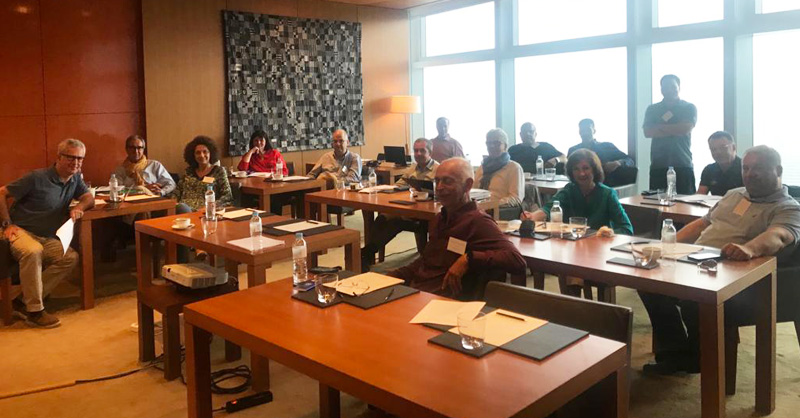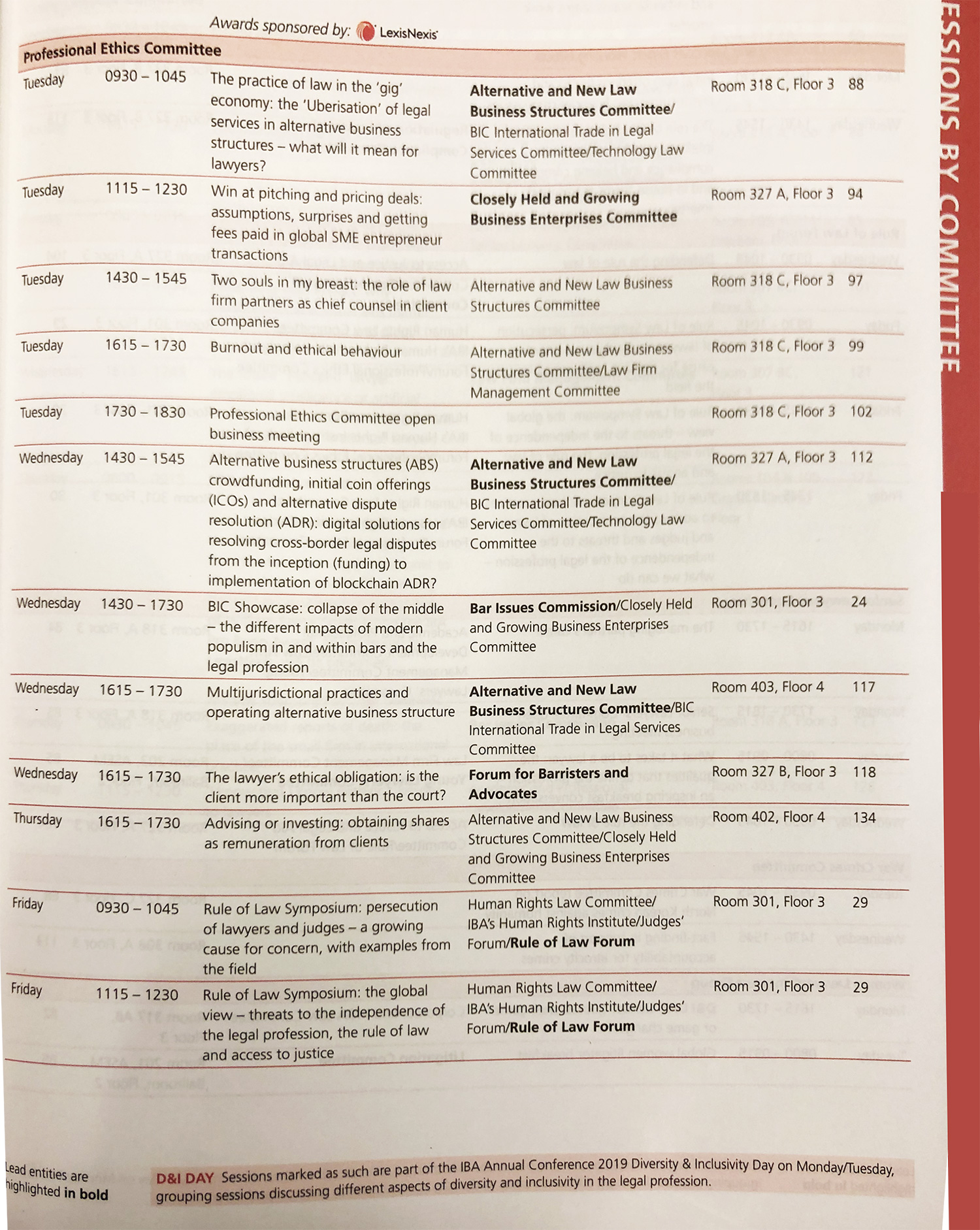Intensive activity of the IBA Professional Ethics Committee, Co-Chaired by Carlos Valls, at the IBA Annual Meeting in Seoul
The Annual Meeting in Seoul started for Carlos Valls, as Co-Chair of the Professional Ethics Committee (PEC) at a retreat for members of PEC in Busan (see picture of the attendants at the meeting, discussing the strategy of PEC for the following year).

Carlos Valls intervened directly as Chair in the Session “Burnout and ethical behavior” (a summary of which will soon appear in the PEC eBulletin within the IBA website), in which, after defining what burnout is about, and its consequences, the causes where analyzed (from excessive focus on quantitative objectives like billings, profits, or hours recorded, to the acknowledgment that this is a lonely profession, or that the element of vocation and mentoring should be reinforced), the potential applicable rules studied (fundamentally, a duty to report), and the more immediate solutions envisaged (from an acknowledgment of the situation as a starting point, to a realistic assessment of what should be the goals and motivations of the professional and the law firm as a whole). It was clear, though, that the professional rules worldwide on this matter may be insufficient, and this may have to be raised at the IBA management level for further discussion. The panel, led by Steve Richman, was formed by Tracey Calvert, Richard Martin, Moray McLaren and Lim Tat.
Carlos Valls also participated as Co-Chair of PEC at the Showcase “The collapse of the middle – the different impacts of modern populism in and within Bars and the legal profession”. This extraordinary session, chaired by Alberto Navarro and Martin Kovnats, to which PEC was honored to sponsor, dealt with the potential or real deterioration of the rule of law in current jurisdictions where populism has invaded politics, started with a conceptualization of what populism is about by historian and economist Emilio Ocampo, and with a comparison of what is happening in Venezuela and US, by Leopoldo Martínez. After analyzing different jurisdictions (Hungary, Poland, Italy, UK, US, Venezuela, and Argentina), at the question of whether constitutional rules were being threatened or breached, Carlos Valls observed that in order to preserve the rule of law, a strict positivist approach to law interpretation was not a requisite, as a proper iusnaturalist or spiritual interpretation could also be crucial at times to avoid the abuse of the political institutions, and referred to the famous Hart/Dworkin debate in the second half of last century. The session was credited by excellent interventions from Christina Blacklaws, Maria Slazak, Riccardo Cajola, Harvey Cohen, Hermann Knott, Steve Richman, Carlo Pavesio, Gabor Damjanovic, Louis Bouchman and Johan Rijlaarsdam. The opening speeches by Horacio Bernardes (IBA President), Jim Klotz (IBA Vice-President), and Peter Köves (Chair, Bar Issues Commission) were particularly moving and stressed the important role of the legal profession in upholding the rule of law in difficult circumstances.

PEC lead also two additional very interesting sessions. The first one, on lawyers investing in, or being remunerated with, shares of clients (chaired by Jeffrey Merk), where one of the doubts raised during the session was which duty was at risk, whether the duty to avoid conflicts of interest with the client, or more simply a duty to preserve independence when advising the client. The second one, on having the roles of external lawyer and in-house counsel simultaneously with clients (co-chaired by Alessandra Mourão and Thomas Kaiser-Stockmann). In this latter session, it was clear that partner secondments were on the rise, and it seemed only natural to ask if it was a sign that the bargaining power between clients and external lawyers was shifting decisively in favour of the former.
PEC was additionally involved in other very well attended sessions, like pricing and pitching for SME’s (chaired by Harvey Cohen and Renato Giallombardo, with PEC panelist, Geraldine Clarke), the duty to the Courts versus the duty to clients (Moderator, William Jackson QC), or the evolving nature of the different legal services providers, possibly leading, at least partially, to an “uberisation” of the legal practice (co-chaired by Dalton Albrecht and Derya Durlu Gürzumar) although, as stated by Alessandra Mourão during the session, professional ethics will always condition this evolution, in favour of clients and society).
The best news is that the IBA Professional Ethics Committee is raising an increasing interest from the organization, and Carlos Valls believes that the reason is that PEC is not only dealing with the existing ethical and deontological rules, but also is also reflecting on the important role that ethics has in helping to shape the vision of what the legal profession, and legal services in general, should become in the years to come.



Comments are closed.